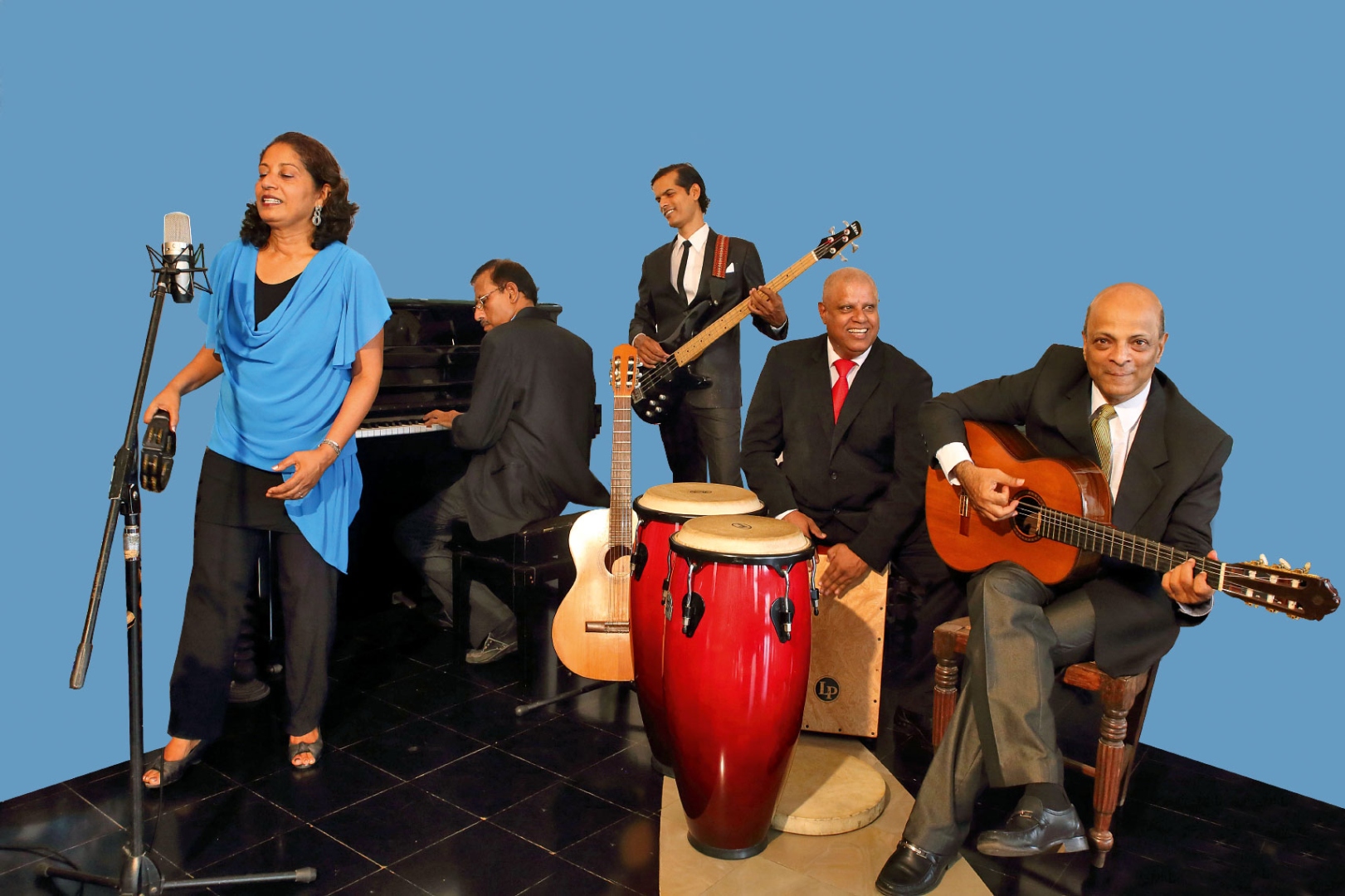For a state whose music, football and food has won it accolades near and far, Goa perhaps does not do enough to promote these fields

In the hustle of bustle of politics and sports -- the staple diet of most newspapers -- we tend to overlook some other aspects of Goan life, that shape our identity and our times. The other day, the importance of one of these intangibles came across dramatically to me: music.
Clara noticed that someone had a collection of CDs to give away. Since some of these related to Goa, she suggested I ask for them. Collecting books on Goa has been a long time passion, and CDs are not far removed. So I wrote to Ubelina, and requested the Konkani CDs, if these were still available.
Konkani music takes me back to the 1960s and 1970s, when our English-oriented family had recently returned from abroad. Encountering Konkani music on the radio was one thing then. Our neighbours, who didn't have their own radio, loved listening to this music at our place.
Less than one decade later, in the early to mid 1970s, our uncle, who lived in Southampton, would travel through Bombay frequently. Each time, he would stop at music shops in the metropolis, and pick up some 33-1/3 rpm large records to hear back home. He left these here while going back. Though his own family had been out of Goa for maybe two or three generations, uncle had this Konkani deep in his heart. Which is also why I believe that language-loss and culture-erosion can indeed be reversed.
So, coming back to the story at hand. Ubelina's box of cassettes, dropped over via the kindness of Alice, was a fascinating collection. I stayed silent to the question on whether my system had a CD reader; but buying a system online cost just a little over a thousand rupees and reached soon.
There are a small, but very devoted, number of fans who still closely follow the world of Konkani music. Some, like Eddie Verdes, have gone to great lengths to document the music and songs of Alfred Rose. But not only that.
Leaxan Freitas, a young techie, has done impressive work, though he started not long back. He works to understand and explain the charm of Goan Konkani music.
Others like Ivo D'Cunha, of Assolna but based in the Gulf, create and share their own music out of there. Anthony D'Mello of Tivim tracks and runs some interesting Konkani groups related to kantaram (the popular songs which saw they heyday in the 1950s to the 1970s) and mandde (singular: mando).
For a state whose music, football and food has won it accolades near and far, Goa perhaps does not do enough to promote these fields. Much more is possible.
It is therefore heartening to know that not everyone has forgotten the charm of Goan music. This is true even if technology and economics is unfair in how it treats the culture of a small region. Who remembers what a CD is? What has happened to all the music that was on cassettes?
Despite all the odds, the musicians do keep creating and sharing their work. Hats off to them.
But there are some options too. Both, for those interested, and those who realise the importance of preserving this aspect of Goa's past... its sound archives.
Verdes wrote: "Today I visited Vibes, Margao. They had some audio CDs and VCDs. The latest addition was Edwin D’Costa’s 103 Album, the rest were all a mix of old CDs. [Some CDs were on offer at half-price of] ₹75/- only but there were just a few. And lastly he said these Konkani CDs are now purchased by Goans coming from abroad!"
Some recalled that gaddas (roadside kiosks) once sold Konkani CDs and cassettes; these have now diverted to other businesses. Music CDs and cassettes were also sold at tiatrs. There was an S. Lemos, who would sell his CDs himself, at the Mapusa market, carrying a bag, and hanging around Ubaldo Braganza's Royal T Store in that North Goa commercial centre.
Such have been the travails facing Goan music. Promoting itself has been tough and slow. Technology changes; and a whole lot of work gets discarded out of the window, as it were. Finding the market can be a struggle too. Inspite of all this, some continue. A hat-tip to these musicians, artistes and others who have doggedly kept to it.
Recently, the Portuguese scholar Dr Susana Sardo spoke of her work in ethnomusicology. Ethnomusicology is the multidisciplinary study of music in its cultural context, investigating social, cognitive, biological, comparative, and other dimensions involved other than sound. She also spoke about the need to create local researchers in the field.
Meanwhile, besides the amnesia, selective memory loss and technology challenges, there are other problems which afflict Goan Konkani music of the past. The copyrights of large collections are ending up in the hands of a few big players.
This takes the work out of reach from its fans; or it will be made available only at a price. While the corporatisation of music -- created with love, sweat and tears by so many -- is touted as the solution to promoting it, it could also sound its death knell. The artistes who created all this work are unlikely to have got anything or little out of the whole process.
Goa needs to recognise the treasure of the past. Otherwise, we end up with a situation described online by Verdes: "A musician friend once told me he has 500 cassettes and that these were there on the loft. I told him search and come back the next day. On the next day he tells me, 'My wife gave all those to a scrap collector! Chapter closed."